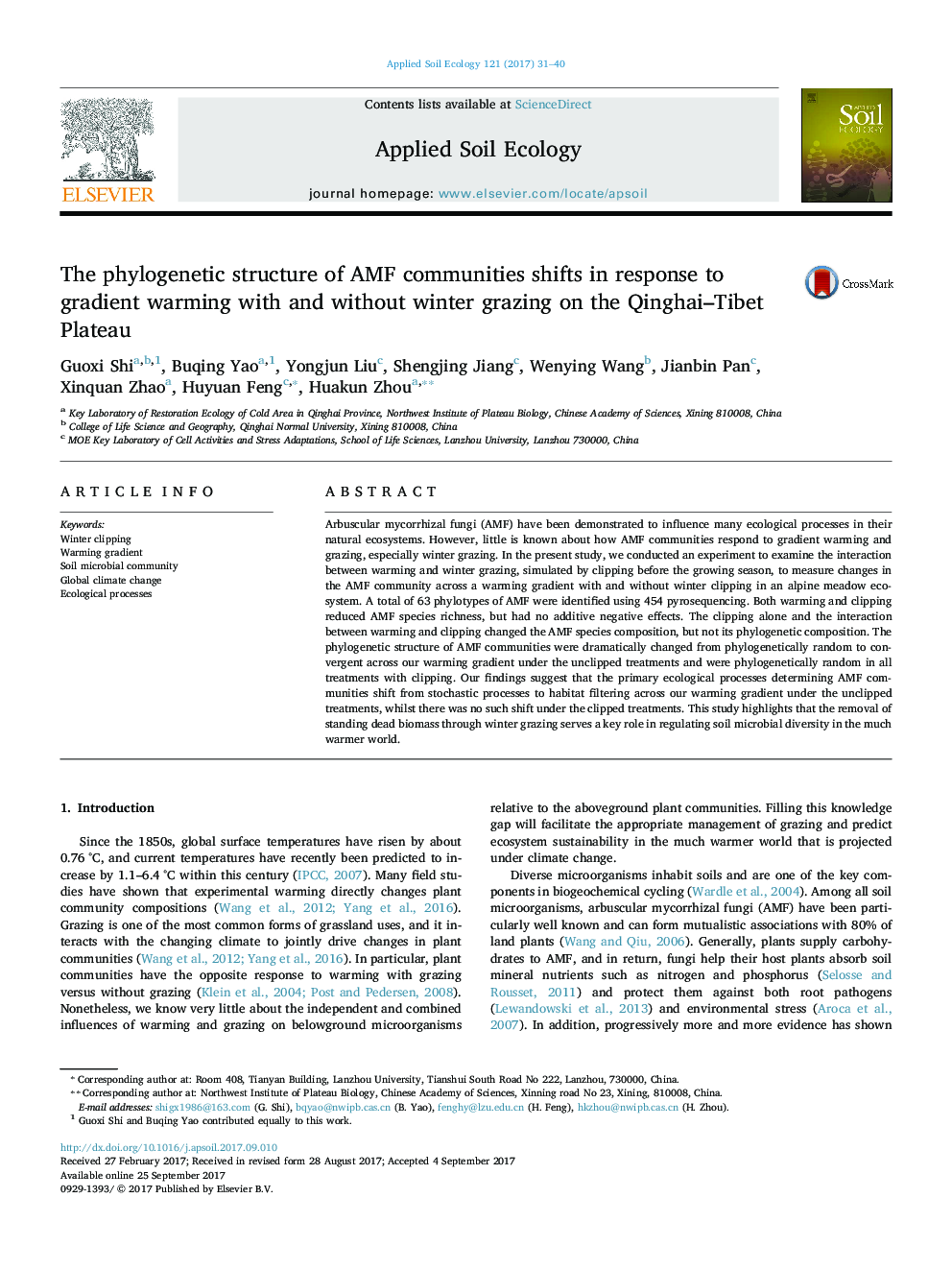| کد مقاله | کد نشریه | سال انتشار | مقاله انگلیسی | نسخه تمام متن |
|---|---|---|---|---|
| 5742541 | 1617763 | 2017 | 10 صفحه PDF | دانلود رایگان |

- AMF responses to gradient warming and simulated winter grazing were assessed.
- Both warming and simulated grazing reduced AMF richness without additive effects.
- Simulated grazing masked the effect of warming on AMF at a given temperature.
- Shifts in ecological processes determined AMF across a warming gradient.
Arbuscular mycorrhizal fungi (AMF) have been demonstrated to influence many ecological processes in their natural ecosystems. However, little is known about how AMF communities respond to gradient warming and grazing, especially winter grazing. In the present study, we conducted an experiment to examine the interaction between warming and winter grazing, simulated by clipping before the growing season, to measure changes in the AMF community across a warming gradient with and without winter clipping in an alpine meadow ecosystem. A total of 63 phylotypes of AMF were identified using 454 pyrosequencing. Both warming and clipping reduced AMF species richness, but had no additive negative effects. The clipping alone and the interaction between warming and clipping changed the AMF species composition, but not its phylogenetic composition. The phylogenetic structure of AMF communities were dramatically changed from phylogenetically random to convergent across our warming gradient under the unclipped treatments and were phylogenetically random in all treatments with clipping. Our findings suggest that the primary ecological processes determining AMF communities shift from stochastic processes to habitat filtering across our warming gradient under the unclipped treatments, whilst there was no such shift under the clipped treatments. This study highlights that the removal of standing dead biomass through winter grazing serves a key role in regulating soil microbial diversity in the much warmer world.
Journal: Applied Soil Ecology - Volume 121, December 2017, Pages 31-40